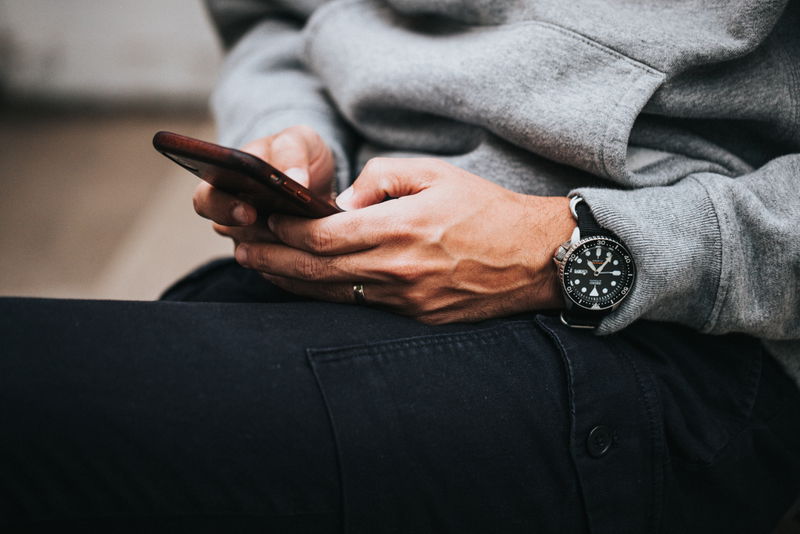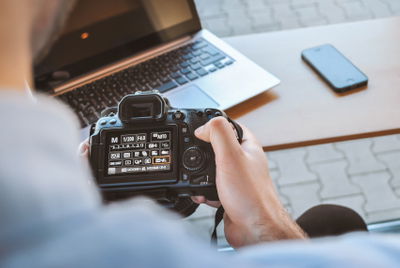Staying Safe on Social Media
Social media is a powerful tool that everyone can use to stay connected. However, it is important to follow safety and security protocols to protect your personal information, safeguard your accounts and maintain your privacy. Here are 8 tips for staying safe on social media platformsTable of Contents:

Understand Privacy Settings
Privacy settings are vital for staying safe on social media. Controlling who can view your posts and profile will help protect your information and give you peace of mind.Most social media platforms have features where you can control who sees the content you post. You can choose who can comment and share your posts, as well as who can view your profile. It's important to familiarize yourself with the settings, so you can make sure you're comfortable with who can view your information.
When setting up your profile, it's also important to carefully consider what information you want to share. Where possible, avoid including any specific personal information, such as your home address, phone numbers, and banking details. This will help to protect you from unwanted contacts and online predators.
By understanding and using the privacy settings available on social media, you can stay safe and take control of your online presence.
Do you need a website? Want to build a website but don't know where to start? Our website builder is the perfect solution. Easy to use, and with the ability to customize to fit your business needs, you can have a professional website in no time.
Know Your Audience
When it comes to staying safe on social media, knowing your audience is essential. It's important to think carefully about who and how you share your information. Different social media platforms may have different types of users. For example, young adults may use one platform while a professional network may exist on another. In addition, posts may appeal to different audiences depending on their content. By understanding who your viewers are, you can tailor the information to their interests and concerns.Do some research on the platform to get an idea of the typical users and what kind of content they respond to. This can help ensure that you are sending the right message and interacting with the appropriate people. It can also be beneficial to analyze your audience's engagement with your posts, such as likes, comments, and shares, to gauge their reaction and adjust your posts accordingly. This will help you ensure that you are staying safe on social media.
Avoid Posting Your Address or Mobile Number
It is important to ensure that you are keeping yourself safe while using social media. One way to do this is to be mindful of the information you post online, even if it is on private accounts. Avoid posting your address or mobile number online as it can be used to locate you. You should also be aware that even when these details are posted within private accounts, they may still be visible to some users. It is important to be wary of cyber dangers, such as identity theft, that can be linked to posting personal information online. It is best to err on the side of caution and not put any info about your address or mobile number on any social media platform. Building a website with SITE123 is easy
Be Careful When You Accept a Friend
When using social media, it is important to be careful who you accept as a friend. It is important to practice caution when forming relationships online, as it’s difficult to verify the true identities of people you meet online.Talk to your parents or guardians if you find yourself in a situation where a person online is making you feel uncomfortable or there is any sort of suspicious behavior. Even if it's a friend of a friend, be mindful and remember that things aren't always what they seem.
Never give out personal information (such as your address, phone number, bank account details, etc.) to anyone online, even if they know people you know. Don't be afraid to block or delete someone from your contacts if you feel like it is necessary.
Finally, stay active in maintaining your account’s security. Make sure that your passwords are strong and secure, and use two-factor authentication when possible. This will help keep your account secure if it becomes compromised.
Do Not Share Private Information
It is very important to be careful online and keep your personal information private. Sharing too much information on social media can open the door for potential risks. Do not share private information like your address, telephone number, passwords, bank information, or any other sensitive data.It is also important to be mindful of what you post. For instance, think carefully before posting vacation plans or other information that would alert someone to when you may not be home. Posts that express anger or depression can also increase the potential of encountering unsafe people online.
Stay aware and always make sure to follow the appropriate privacy settings for each platform. Utilizing the highest security settings and enabling two-factor authentication can help protect your personal information. If you or someone you know is subjected to cyber bullying or other online threats, contact the proper authorities.
Be Cautious When Sharing Photos
When sharing photos or other personal information on social media, it's important to be cautious. Before sharing any photo, take a minute to think about who could potentially see it and its implications. Photos posted online can stay on the internet for an indefinite amount of time, and could be seen by someone you weren't intending.Always be aware of your safety and the safety of those in the photo. Check the privacy settings on the platform you're using to ensure that only the people that you intend to see the photo are the ones who actually can.
Be aware of flattery scams, where strangers try to get information out of you by flattering you or telling you want to hear. Refrain from adding people you don't know well, either. Also, try not to post personal identifying information, such as your full name, address, or phone number.
Never Click on Suspicious Links
Never click on suspicious links, even if they might seem to come from a friend or family member. It's easy for scammers to pretend to be someone else online and phishing is a common method of stealing your personal information. Be extra careful when you're clicking links on social media, and if you're not sure, don't click anything. Report any suspicious activity or links to the social media platform administrators so that they can be blocked.If a friend or family member really did send you a link, double-check before you click. Ask them directly if they really posted it and make sure that the link is safe to click.





